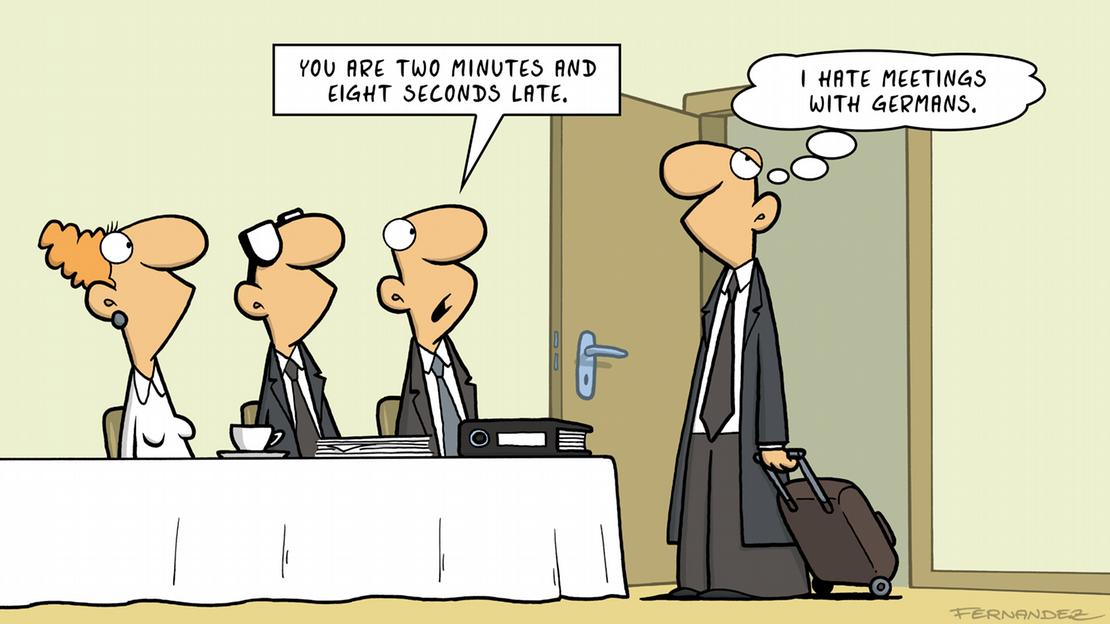When companies decide to expand their business in Europe, a lot of the time, they set their sights on Germany. It’s no wonder considering it is the largest economy in the European Union and a key player in the global market. It is also a leading country in technology and innovation, making it attractive for B2B SaaS and technology companies.
However, entering German markets brings its own set of challenges that foreign companies need to overcome if they want to be successful. Having a solid understanding of things such as culture, laws and regulations, business practices, competition, etc. will be hugely beneficial and might be the case for breaking it or making it for a lot of companies.

As usual, it starts with market research
First and foremost, it is important to conduct thorough market research to identify a product-market fit that fills the specific needs and demands of German businesses and to determine how your product or service can meet those needs. This includes understanding the local competition, as well as identifying potential partners and distributors. Additionally, it is important to be aware of any regulations and compliance requirements that may apply to your product or service in Germany.
You can start your market research efforts by:
- Analyzing data on market trends
- Gathering information on customer needs and preferences
- Analyzing competitive landscape
- Identify key players in the market
- Conducting surveys
Make use of industry reports and market research firms to gather more in-depth information on the German markets.
Direct sales vs partner channels
While conducting market research into the German markets, you might be wondering which sales model is the best. You have the option of using direct sales and/or partner channels. Direct sales involve directly reaching out to potential customers and partners through methods such as cold calling, emailing, and attending trade shows and networking events. This approach allows for more control over the sales process and can be more effective for establishing personal relationships with potential customers.
On the other hand, partner channels involve working with local companies or distributors to reach potential customers and partners. This approach can be more efficient in terms of reaching a larger number of potential customers, but it also requires more trust and cooperation with the partner. Partner channels can be beneficial for companies that are new to the German market and may not have a strong local presence or sales team.
Ultimately, the choice between direct sales and partner channels will depend on the specific needs and resources of the company. A combination of both approaches may also work out well. It is important to understand the local competition, as well as identify potential partners and distributors before making a decision.
Consider the cultural differences
When it comes to cultural differences, it’s essential to be aware that German business culture is characterized by punctuality, direct communication, and a focus on quality. Building personal relationships is also important, and face-to-face meetings are often preferred. Being able to communicate effectively in German is also a big plus, as it shows respect for the local culture and can help build trust with potential customers and partners.
Partnering up with locals will be extremely beneficial
We can’t recommend it enough but partnering up with agencies or representatives that have a local presence and can help you with a robust go-to-market plan that includes a well-structured sales and marketing strategy. They can not only help you with navigating the market and connecting with potential customers and partners, but they will make entering the German market significantly faster, more reliable, and more successful.
Having local salespeople who speak the language is also a key factor for success in the German market. While things are changing, the fact is that German businesses prefer to communicate in their native language, and having salespeople who are fluent in German can help build trust and establish personal relationships with potential customers and partners. It also demonstrates a level of commitment to staying in the market and respect for the local culture. This can be especially important for B2B sales, where building trust and personal relationships are often crucial for closing deals.
Localizing materials
Another important aspect of localization is the localization of your marketing and sales efforts. It’s not enough to just have people who speak the language, you’ll also need to localize your marketing materials, such as brochures and presentations which will increase their effectiveness in the German market.
Additionally, localization also includes adapting your product or service to comply with German regulations and certifications. Many German businesses are highly regulated and may require specific certifications or approvals before they can use your product or service.
Sales cycles can be longer
The sales cycle lengths in Germany for B2B businesses can vary depending on the industry and the type of product or service being sold. However, in general, it is known that the sales cycles in Germany tend to be longer than in other countries. This is partly due to the fact that German businesses are highly regulated and often require specific certifications or approvals before they can use a new product or service. Additionally, German businesses also tend to be more cautious when making purchasing decisions and may take longer to evaluate and compare different options before committing to a purchase.
In some industries such as manufacturing or automotive, sales cycles can be quite long and can take several months or even years. This is because of the long-term nature of the products and the complexity of the sales process. On the other hand, in technology or software, the sales cycles may be shorter because the nature of the product and the decision-making process is less complex.
It’s important for B2B companies to have a realistic understanding of the sales cycle lengths in the German market and to plan accordingly. This may involve adjusting sales strategies, building relationships with potential customers and partners over time, and being prepared to answer any questions or concerns that may arise during the evaluation process.
What about hiring?
We touched on many points in this post about entering the German markets. The thing is that this is only a starting point and in reality, it’s a lot of work before you can even think about getting boots on the ground and selling in Germany. Preparing and doing your research can take a long time which is why we recommend partnering up with local experts, someone that knows the market inside and out and can craft a well-defined GTM plan that is unique to your business and needs.
Then there’s the fact that you need good local salespeople to do sales in Germany which will take even more time. How will you find them? How long will it take to train them? Our recommendation is usually to outsource this part to a competent company that has senior salespeople in Germany, with already-established relationships and networks with your potential clients and partners. There are a lot of good reasons for doing it this way.
- Significantly lowers the risk
- Faster market entry time
- You’ll see results sooner
The reason for lower risk is that you can be flexible with your budget. You can always change the level of commitment down or up budget-wise. There’s no overhead in setting up entities, offices, salaries, etc. If for some reason it doesn’t work out, or your strategies change, you can easily pivot. Letting go of people in Europe is not as easy as you might know.
Having senior salespeople in your target market, in this case, Germany, will be considerably more effective as they already have networks when it comes to partners, organizations, potential clients, and so on. You also don’t need as much time to train them in selling your solution or product. They are seasoned veterans.
Combining our experience and everything we have learned so far, it’s safe to say that entering German markets with the help of local market experts and sales outsourcing companies is the better way in most cases.
Want to enter the German markets?
If your company is looking to enter the German markets, contact us to book a meeting. Our local market experts and salespeople in Germany will be able to get you the results you’re looking for not only faster but with better results.

















